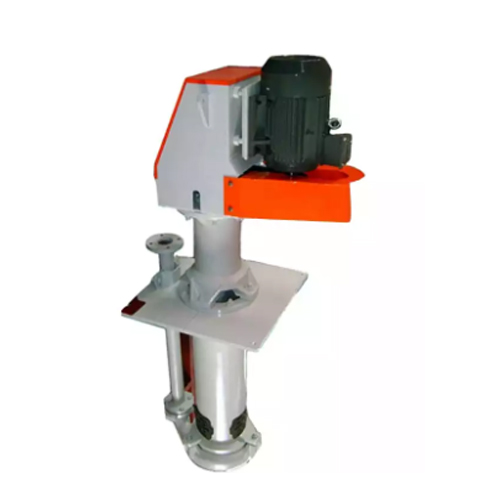- Shifo Industrial Zone, Anguo City, Hebei Province,China
- +8618831216699
sale@nlpumps.com

Slurry pumps are an essential piece of equipment in industries that involve the handling of abrasive fluids such as mining, construction, and wastewater treatment. They are designed to handle viscous and abrasive fluids, and as such, they are subjected to harsh conditions that can cause wear and tear on the pump components.

When a slurry pump stops working, it can cause significant disruptions in the operations of the industry. There are several reasons why a slurry pump may not work, and in this article, we will explore some of the common causes and their solutions.
Blockage: One of the most common reasons why a slurry pump may not work is blockage. The pump's impeller can become clogged with solid particles, which can cause the pump to stop working. The solution to this problem is to remove the blockage by opening the pump and cleaning the impeller.
Air leaks: If there is an air leak in the suction line or pump housing, it can cause the pump to lose its prime, which means that it will not be able to pump the slurry. The solution to this problem is to check the suction line and pump housing for leaks and seal them appropriately.
Worn impeller or casing: Slurry pumps are designed to handle abrasive fluids, which can cause wear and tear on the impeller and casing. If the impeller or casing is worn, it can cause the pump to lose its efficiency and eventually stop working altogether. The solution to this problem is to replace the worn parts.
Incorrect pump selection: The selection of the wrong pump for the job can cause it to fail. It is essential to choose a pump that is designed for the specific application. A pump that is too small or too large for the job can cause problems. The solution to this problem is to consult with a pump expert to select the appropriate pump for the job.
Motor issues: The motor is the heart of the pump, and if it is not functioning correctly, the pump will not work. The motor can fail due to electrical issues or overheating. The solution to this problem is to have a qualified electrician check the motor and wiring.
In conclusion, a slurry pump that is not working can cause significant disruptions in operations. The causes of the problem can be varied, but some of the common reasons include blockage, air leaks, worn impeller or casing, incorrect pump selection, and motor issues. It is important to identify the cause of the problem and take the appropriate measures to fix it. Regular maintenance and inspection of the pump can help prevent problems from occurring.